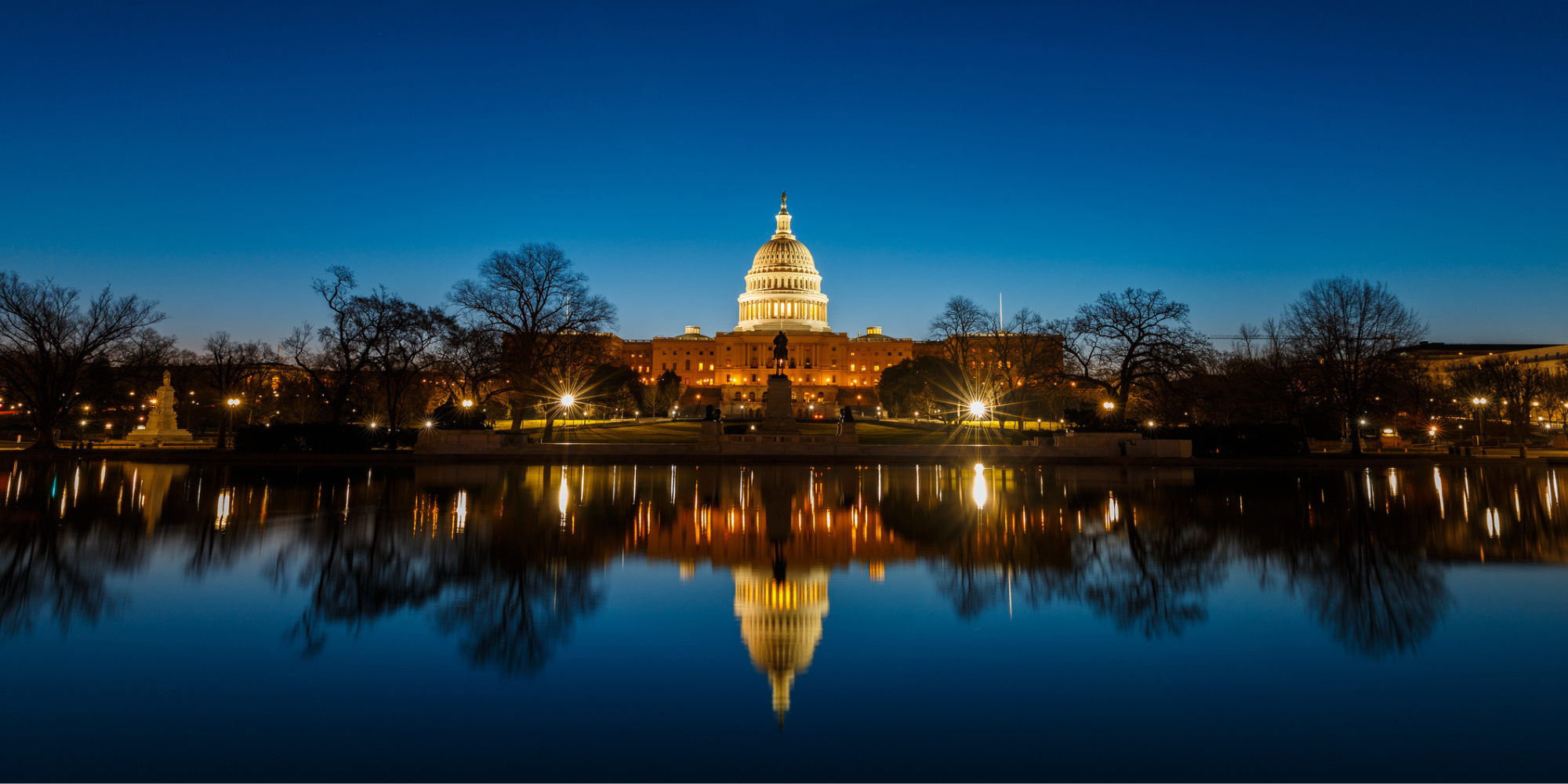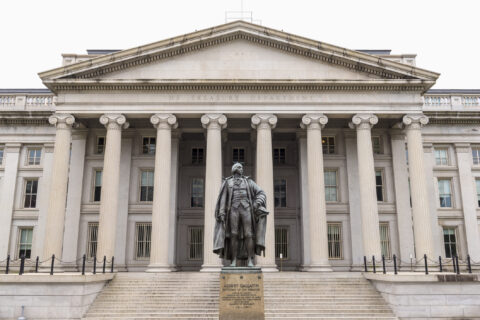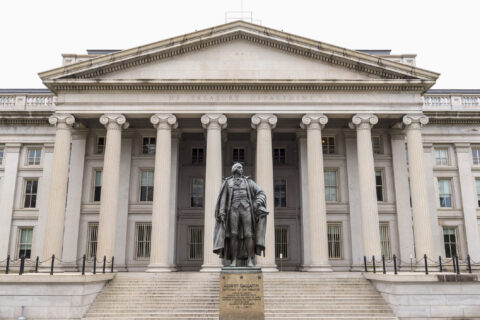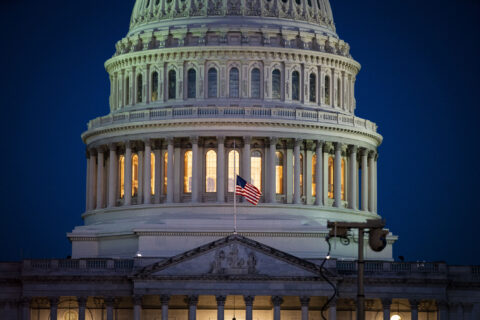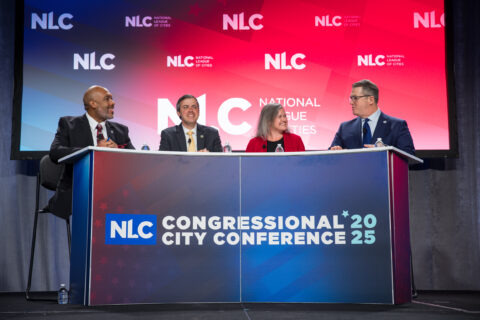Update as of 4/28/23: The House of Representatives passed the Limit, Save, Grow Act of 2023 by a vote of 217-215, with four Republicans voting against the package.
Wall Street analysts are predicting that the U.S. Department of Treasury will exhaust its ability to pay its obligations in late June or July—what is called the “X-date”. Therefore, not much will happen in terms of negotiation between House Speaker Kevin McCarthy, President Joe Biden, and Senate Majority Leader Chuck Schumer until the U.S. Treasury gets within a couple weeks of the X-date, and then NLC expects negotiations to pick up in earnest.
On the State and Local Fiscal Recovery Funds (SLFRF) program front, the Congressional Budget Office, the official score keeper for Congress, said the rescission would happen broadly across all six Covid-era packages that Congress passed between 2020-2022. The rescissions would total approximately $30 billion, but not touch the SLFRF program.
The American Rescue Plan Act State and Local Fiscal Recovery Funds (SLFRF) program has been a lifeline for cities, towns and villages across the country as we rebuild and recover from the COVID-19 pandemic.
In recent days, two new threats to ARPA funds were introduced in Congress. The premature claw back of these funds would jeopardize millions of dollars in local investments in public safety, infrastructure and other top community priorities.
NLC is working closely with and is developing a strong advocacy plan to work with state leagues, allied organizations, as well as elected officials to tell the story of how transformative these dollars have been for communities of all sizes.
Unfortunately, these threats will likely not be the last. NLC will continue to keep you updated and fight back against these attacks on ARPA.
ARPA Claw Back Amendment Fails on the Senate Floor
On Wednesday, April 19, the U.S. Senate voted on an amendment that would claw back unobligated American Rescue Plan Act State and Local Fiscal Recovery Funds (SLFRF) and transfer those dollars to the Administrator of the United States Fire Administration.
The amendment, offered by Senator Rick Scott (R-Fla.), failed in a vote of 47-49. The amendment did not reach the 60-vote threshold in order to pass and be attached to the underlying bill, S. 870, The Fire Grants and Safety Act.
This was a move to tie a claw back of SLFRF funds to a must-pass bill. There was large bipartisan support in the Senate for S. 870, the Fire Grants and Safety Act, making this bill an easy target for extraneous amendments, as Senators knew this was a must-pass bill.
The Fire Grants and Safety Act was not related to ARPA. It is a bipartisan bill focused on providing federal grants to local fire departments.
NLC is aware that this attempt to claw back SLFRF funding will not be the last. There are other must-pass bills this year which could be targets for amendments clawing back ARPA funds, including the Farm Bill, the FAA reauthorization, and addressing the debt ceiling.
Opponents of the funding to local governments will continue to fight to claw back the money. NLC is working diligently to protect the funds that cities, towns and villages received as part of SLFRF to invest in their communities.
Speaker McCarthy Debt Limit Proposal Includes Provision to Claw Back SLFRF Funds
The next fight on SLFRF claw backs is already here.
On Wednesday, the same day NLC defeated an amendment to claw back SLFRF funds and redirect them to the United States Fire Administration, Speaker Kevin McCarthy (R-Calif.) introduced the Limit, Save, Grow Act of 2023, the House Republican plan to raise the debt ceiling by $1.5 trillion or through March 31, 2024 (whichever comes first).
The bill would permanently rescind “unobligated balances of amounts already appropriated or otherwise made available by the American Rescue Plan Act.”
NLC CEO and Executive Director Clarence E. Anthony issued a statement describing how this would be detrimental to cities, towns and villages.
Members of Congress considering supporting this bill should first talk with the mayors and city councilmembers elected to run the municipal governments in their districts. These dollars have made affordable housing projects possible, they’ve funded crime prevention measures, they’ve allowed small towns to buy ambulances, they’ve kept trash collection services going when tax revenue dried up and so much more.
NLC CEO and Executive Director Clarence E. Anthony
The funds made available to local governments in the American Rescue Plan Act have been a lifeline to our nation’s communities, and any attempt to claw back these funds should be immediately rejected.
The Speaker’s plan does not have support in the Democratic-controlled Senate. This is the opening salvo in an attempt to jumpstart stalled negotiations with the White House on the debt ceiling. The White House put out the President’s Budget earlier this year as a starting point for negotiations.
Now, Speaker McCarthy is hoping to get this package, which contains a broad range of spending reductions and savings proposals in order to generate enough savings to offset raising the debt ceiling through the next election, through the House. The Speaker wants to pass this collection of measures to show that he has a unified negotiating position with The White House. However, Speaker McCarthy has only a four-vote margin, so he will need to get near unanimity among a fractured conference when this comes up for a vote.
Rest assured, NLC is working hard to protect these critical dollars for cities, towns and villages.
Learn more about how cities, towns and villages are using ARPA funds to rebuild and recover – and share your ARPA story with your Congressional delegation!
Learn More
Learn more about how cities, towns and villages are using ARPA funds to rebuild and recover – and share your ARPA story with your Congressional delegation!
